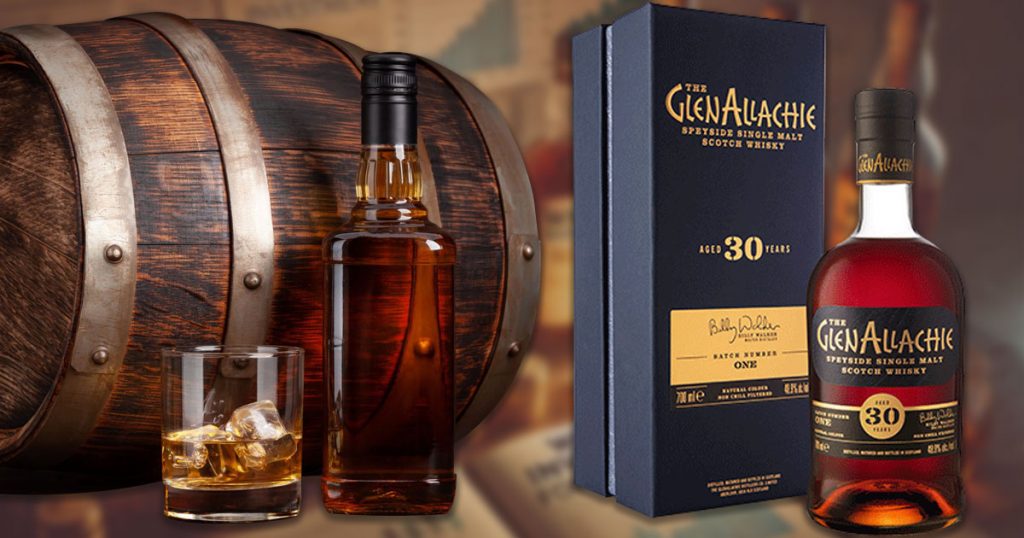Have you ever wondered if your love for whisky could become profitable? Whisky as an investment has gained traction among collectors, investors, and enthusiasts alike. But before you invest your money, it’s important to fully understand what investing in whisky is like, its benefits, and the risks you need to be aware of.
Why People Are Investing in Whisky
Whisky has long been a symbol of class, craftsmanship, and culture. Over the years, it’s also gained attention for its potential to bring returns.
Unlike stocks or crypto, whisky is a tangible asset. People collect it not just for value but also for the story behind every bottle. Rarity, heritage, and quality play a big role in making certain whiskies desirable.
But is whisky a good investment? That depends on your approach. Rare Scotch whiskies and limited-edition bottles have been known to appreciate. One standout case happened in November 2023, when a 1926 Macallan bottle sold at auction for almost $2.2 million. While not every bottle will hit those numbers, it shows the strong appetite for high-end whisky.
As more people gain disposable income, luxury items like aged whisky become more attractive. This trend fuels the demand for collectible bottles and investment-grade casks.
Exploring the Two Investment Paths: Bottles vs. Casks
When investing in whisky, you can choose between buying bottles or casks. Both come with unique advantages and challenges.
Bottle Investment
This is the easiest way to get started. You can buy limited releases or rare editions from known brands like Macallan, Glenfiddich, or Yamazaki. These bottles often gain value over time, especially when well-preserved.
Buying whisky for investment at this level doesn’t require warehouse space. Bottles can be stored at home if you follow proper preservation practices. Think of it as collecting art that you can admire without hanging on a wall.
Auctions, specialty stores, and direct distillery purchases are good ways to build your collection. Some investors even treat bottle collecting like treasure hunting, searching for the next rare release.
Cask Investment
Cask investing takes a larger commitment but can offer greater returns. A cask contains hundreds of bottles and continues to mature with age, often increasing its value.
However, storage is a challenge. Casks need to be kept in bonded warehouses, which adds extra cost. They also take years to mature, making this a long-term play.
New investors might find it hard to get access to high-quality casks. You’ll also need a plan for bottling or selling once the cask matures.
Understanding the Risks That Come With Whisky Investment
Every investment comes with risks, and whisky is no exception. If you’re thinking about investing in whisky, keep these key concerns in mind.
Market Fluctuations
Whisky prices can change depending on global demand, collector trends, and economic shifts. Just like any market, there are highs and lows.
To reduce the risk, diversify your collection. Don’t rely on one brand or bottle to bring the return you’re hoping for.
Storage Problems
Improper storage can ruin the value of your whisky. Bottles need to be kept upright, away from sunlight, in cool and dry places.
Casks require professional storage in bonded warehouses. If neglected, evaporation and leakage can cause loss of value.
Counterfeit Bottles
High-value bottles are often targets for fraud. Distilleries with strong reputations, like Macallan or Bowmore, are common victims.
Protect yourself by buying only from trusted retailers or licensed auctions. Use authentication services for expensive purchases.
Liquidity Concerns
Whisky isn’t something you can sell quickly. Selling involves costs such as insurance, auction fees, or shipping.
It’s not a liquid asset, so don’t invest money you’ll need in the short term. Patience is key in this market.
Tips to Help You Succeed in Whisky Investment
Jumping into whisky investment doesn’t require being an expert right away. Here are ways to improve your chances of success.
Start with research. Learn about different whisky types, top distilleries, and current market trends. Know what makes a whisky valuable.
Begin with bottles that are easier to find and afford. Focus on limited releases and well-known names. As you gain confidence, consider exploring casks.
Diversify your collection. Collect whiskies from different regions, distilleries, and production years. The variety protects you against market swings.
Buy from legitimate sources only. Trusted distilleries, retailers, and auction houses reduce your risk of counterfeit products.
Have a strategy in place. Decide whether you want short-term gains or long-term growth. Your choice will guide what type of whisky to collect.
Engage with the community. Join online forums, attend tasting events, or connect with fellow collectors. The more you learn, the better decisions you’ll make.
Aging Gracefully: Is Whisky Worth the Wait?
Yes, whisky is a good investment, but only for those who treat it seriously. This market rewards knowledge, patience, and attention to detail. Casual buyers hoping for quick profits will likely be disappointed. Real value comes to those who understand the craft, follow the trends, and invest in quality over hype.
Whisky offers something most assets can’t, character. It carries heritage, craftsmanship, and global appeal. If you’re willing to learn the market and protect your collection, whisky can be a smart and enjoyable way to build long-term wealth.
Not every bottle will skyrocket in value, but the right ones can. And unlike stocks, you can enjoy the journey, maybe even a sip of the whiskey, along the way.
